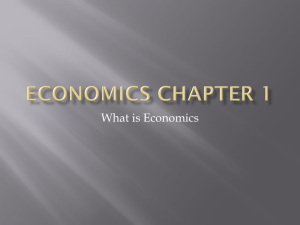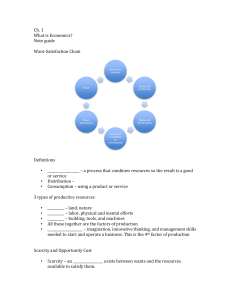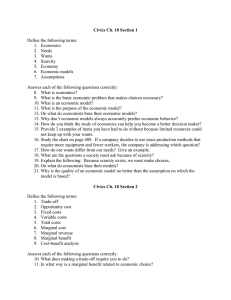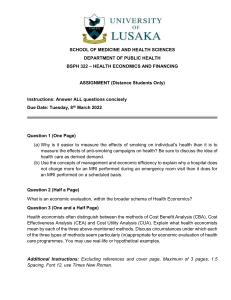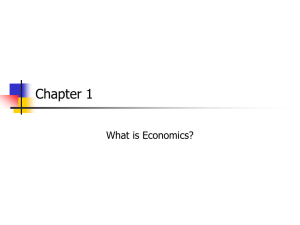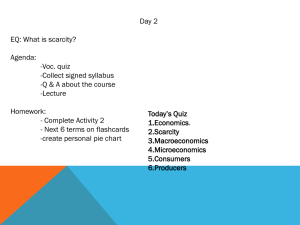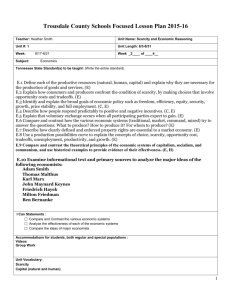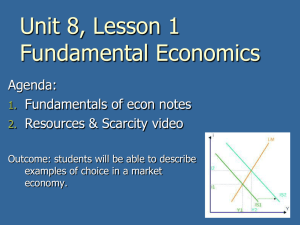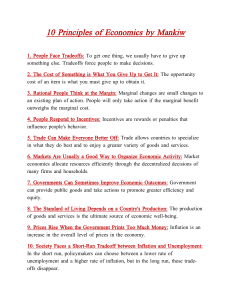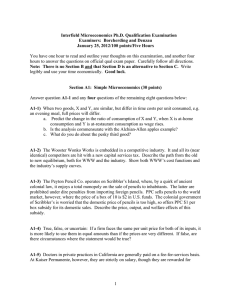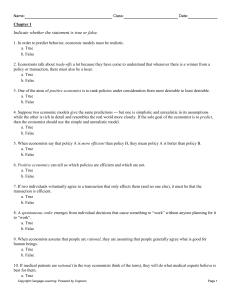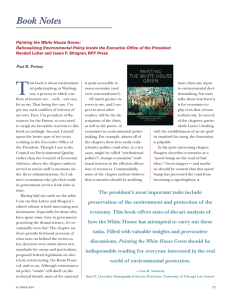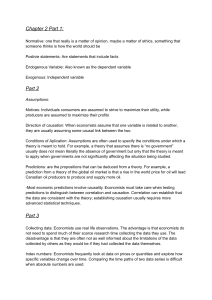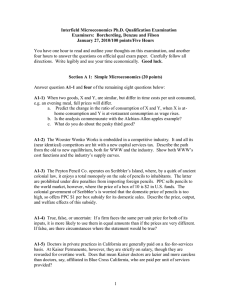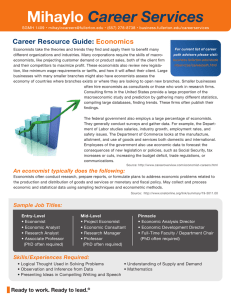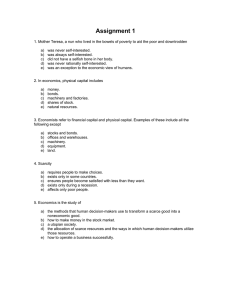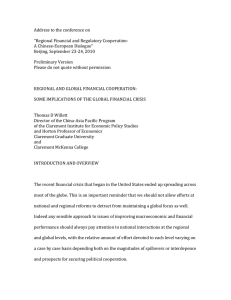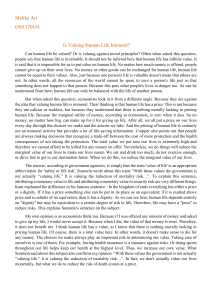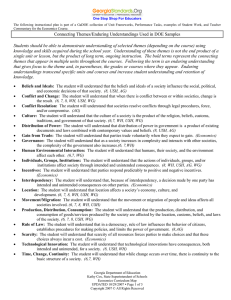Economics
advertisement
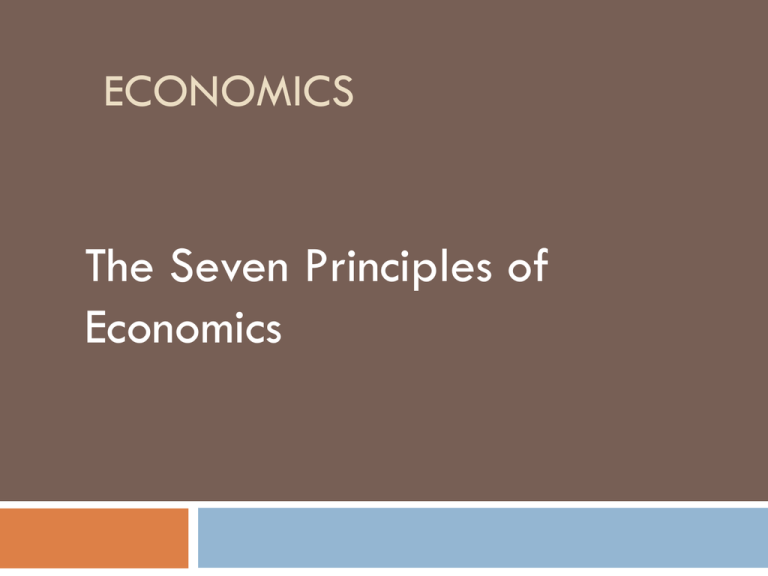
ECONOMICS The Seven Principles of Economics Introduction Economics IS more than just money, taxes, banking, and trade Economists have developed principles that represent a specific way of thinking The number of principles may change depending on the economist, but the overall message is the same Principle #1: Scarcity Forces Tradeoffs Remember the definition of “Economics” Four Scarcity Must make choices Every choice involves tradeoffs No Words: What are they? (L R, U W) such thing as a free lunch What choices and tradeoffs do you think about or make? Principle #2: Costs vs. Benefits Principle #1 makes us choose, but how do we decide? Economists assume that people make choices based on estimated costs and benefits Cost v. Benefit analysis Lists Weighted calculations What are the costs v. benefits of sleeping one hour later each day? Principle #3: Thinking at the Margin Margin is the border or outer edge “A little more” or “a little less” rather than all or nothing Usually decisions are not a wholesale change Marginal cost: What you give up to add “one unit” to an activity Marginal benefit: What you gain by adding one more unit Example: Studying. Should you study 2 hours for Econ, or 3? Principle #4: Incentives Matter Costs and benefits influence our behavior They are INCENTIVES People respond to them Can be positive or negative What are some examples you can think of? Principle #5: Trade Makes People Better Off Why don’t we all make our own clothes, or grow our own food? Adam Smith: none of us is equally skilled at everything Concentrate on what we do best, and trade for the rest! Examples? Principle #6: Markets Direct Trade What is a market to you? Economists take a larger view A market is any arrangement that brings buyers and sellers together to do business Can exist anywhere When markets operate freely, both sides will trade until each is satisfied (theory) Result is efficient market Adam Smith: Invisible Hand Principle #7: Future Consequences Count Do people think long term or short term? Generally shortsighted; they look for immediate benefits and costs Decisions always have long term consequences, though Example: 1968 VT law banned road side billboards; result---people built large sculptures and statues to get attention (19 ft Genie, giant squirrel) Unintended Consequences Conclusion Now you know the principles, it is time to put them into action by analyzing some data on real world situations. But first… http://www.youtube.com/watch?v=VVp8UGjECt4
